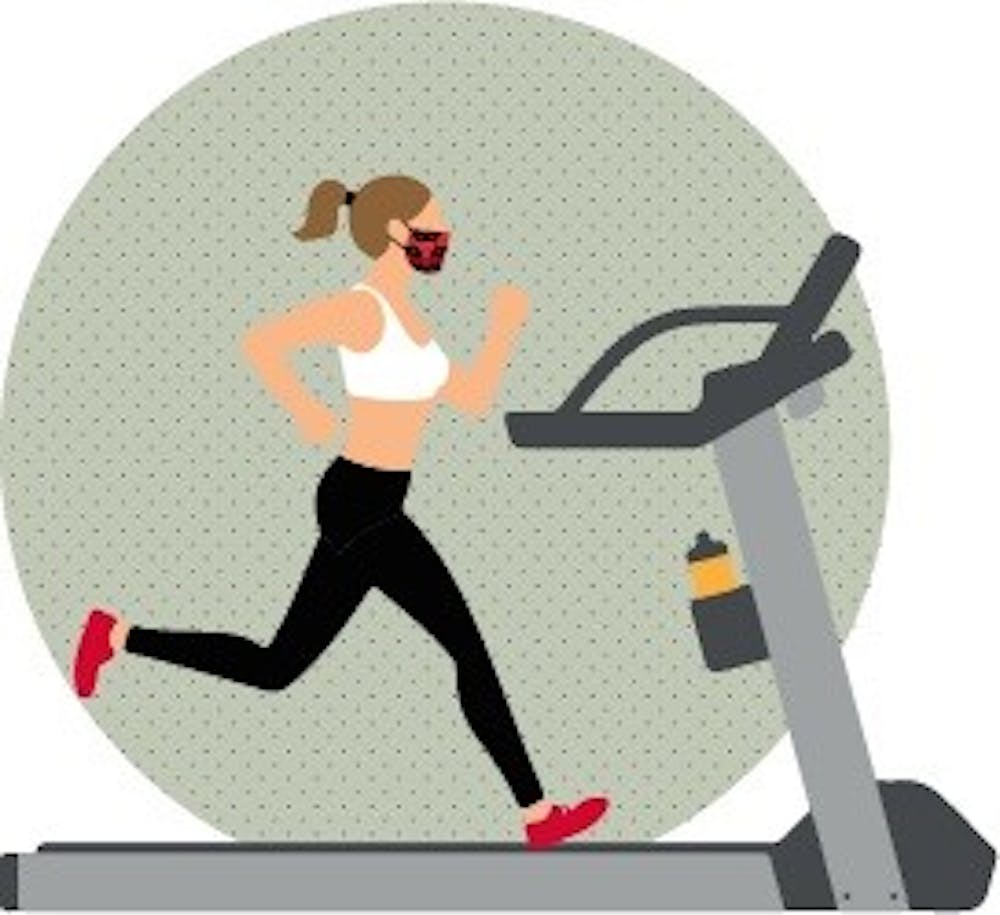中文版请点击此处
The ongoing pandemic changed the exercise routines of people worldwide as gyms, fitness centers, pools and parks were forced to adjust daily functions to meet local and state guidelines. As a result, many individuals did not have access to gym equipment or other resources they typically would use to work out for months.
However, as attested by Siddhartha Angadi, a cardiovascular exercise physiologist in the University’s Kinesiology department, even as restrictions ease, the importance of engaging in physical activity remains.
The Mayo Clinic Proceedings published a study Jan. 1 detailing the relationship between exercise capacity and hospitalization due to COVID-19. The study found an inverse relationship between an individuals’ capacity for exercise and their likelihood of being hospitalized due to COVID-19, meaning a lack of exercise was directly related to declining health in the face of COVID-19.
“In essence, what exercise does is sort of give your body some … cardio-pulmonary cushion, and so if you get a disease like COVID-19, the good news is even if it affects the functioning of your lungs, you’ve got that cushion built-in — you can avoid severe outcomes,” explains Angadi
There are a variety of different activities that people can do to help with their level of fitness. According to Angadi, the recommendation is 150 minutes of moderate-intensity exercise per week, and this exercise could be as simple as a brisk walk. It is more important to exercise consistently than focus on the type of exercise chosen according to Angadi.
Class of 2021 alumna Meredith Brooker worked as a personal trainer at the University while an undergraduate, and she believes it is more important to choose an exercise that the individual feels that they can commit to doing rather than one particular type of exercise.
“If you like running, and you feel that's something you can do week to week, then running’s great,” Brooker said. “If you like weightlifting and you think you can get to the gym each week, then that’s great. I feel like there’s no one size fits all.
In addition to decreasing the chance of becoming hospitalized due to COVID-19, exercise has many long-term preventative health benefits.
“Exercise is one of the most effective [ways] we have to prevent everything from just dying in general to cardiovascular disease, cancer, you name it,” Angadi said. “When you look at individuals who are just somewhat fit, compared to those who are not, you see a fairly substantial 30-50 percent reduction of these future events.”
Although COVID-19 may have changed the way students and faculty worked out for a time, it has also created new or adjusted ways to get in a workout. Gyms both on and off Grounds took COVID-19 precautions by increasing sanitation levels, adjusting the size of group classes and offering virtual classes or pre-recorded exercise videos.
Haleigh Hopper, Class of 2021 alumna and personal trainer, said she noticed a difference between how people exercised before the pandemic began versus what they were doing in the spring semester.
“COVID definitely has changed things,” Hopper said. “A lot of people are trying more online stuff. I know personal training has been trying to do online things, group exercise has been trying to do online things and it's also forced people to not go to gyms.”
Trainers like Hopper have been able to record exercise videos for others to use. For example, the University’s Intramural-Recreational Sports Instagram page features demonstrations of exercises such as jump rope workouts. Additionally, the recreational sports website has information about upcoming online and in-person classes, events and offerings.
The biggest piece of advice that Brooker could give people who are looking to begin working out more is to commit to a schedule when working out.
“Plan in advance when you’re going to exercise,” Brooker said. “Reserve a time in your schedule every week of when you’re going to go exercise. I feel like if you don’t have it planned, it just tends to not happen.”







